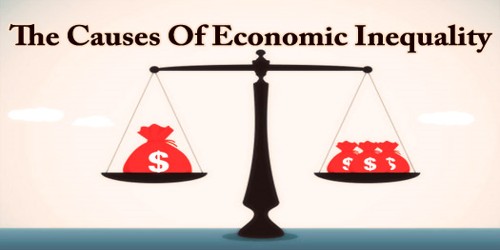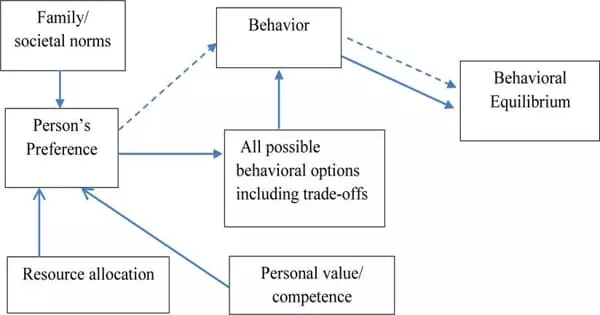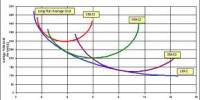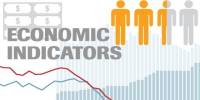Economic Inequality is a concern in almost all countries around the world and often people are trapped in poverty with little chance to climb up the social ladder. It is the unequal distribution of income and opportunity between different groups in society. It also refers to disparities among individuals’ incomes and wealth. And those differences can be great. Forbes counted 2,095 billionaires in the world as of March 18, 2020, when it finalized its most recent rankings and that was after 226 people dropped off over 12 days due to pandemic-induced market turmoil.
Meanwhile, the most recent data from the World Bank tell us that, in 2015, about 736 million people globally were living on less than $1.90 per day. That’s actually a big improvement from 1990 when 1.9 billion people lived in extreme poverty2 and the world had only 269 billionaires.
There are a wide variety of types of economic inequality, most notably measured using the distribution of income (the number of money people are paid) and the distribution of wealth (the number of wealthy people owns). Besides economic inequality between countries or states, there are important types of economic inequality between different groups of people.
Important types of economic measurements focus on wealth, income, and consumption. There are many methods for measuring economic inequality, with the Gini coefficient being a widely used one. Another type of measure is the Inequality-adjusted Human Development Index, which is a statistic composite index that takes inequality into account. Important concepts of equality include equity, equality of outcome, and equality of opportunity.
Research suggests that greater inequality hinders economic growth, with land and human capital inequality reducing growth more than inequality of income. Whereas globalization has reduced global inequality (between nations), it has increased inequality within nations.
The causes of economic inequality are multifarious, and our society hasn’t reached a consensus on what, if anything, to do about it; witness the chasm in the 2020 U.S. presidential election between democratic socialist proposals that include a tax on “extreme wealth” to help fund social programs and Republican opposition to such proposals.
Causes of economic inequality –
There are various reasons for economic inequality within societies. Recent growth in overall income inequality, at least within the OECD countries, has been driven mostly by increasing inequality in wages and salaries.
Economist Thomas Piketty argues that widening economic disparity is an inevitable phenomenon of free-market capitalism when the rate of return of capital (r) is greater than the rate of growth of the economy (g).
While some current cases of inequalities between humans happen to be unfair indeed, the aspect of inequalities of salaries that is caused by the inequality of innate intelligence between humans is a necessary one that nothing can overcome.
- The increased need of qualifications also makes the job market more complex and fragmented, which makes it harder for people to orient and train themselves to the needed skills. Good information systems on the job market are needed, both for directly finding jobs, and in advance, for students to find out what they need to learn. In the lack of such systems, inequalities appear between the many kinds of professional qualifications.
- The education system makes little progress and can quickly become obsolete with respect to the qualifications needs. It creates inequalities between those who waste their life in the system and those who escape, in case they actually need to escape, i.e. they are able to create their job themselves instead of serving the system.
- The globalization and virtualization of the economy increase possibilities to avoid taxation, therefore increasing the inequalities between the business which “follow the rules” as they were intended to apply and those which find ways around.
- Geographic inequalities take place between developed regions and underdeveloped ones, as international trade makes a relative worldwide uniformity of prices on goods that can be traded, but there is no such a good worldwide job market yet, thus forcing many people to work for local poor customers at low prices, while they need to import special goods of high technology from more developed countries anyway. The development of online work will help to reduce geographic inequalities in salaries
- Bureaucracy (heavy, complicated laws on employment and economic activity) is a burden that distracts many activities from, well, productivity. And it is always going to create inequalities between those who follow the rules and those who don’t, making fiscal optimization between countries and/or hiding their activities in the private sphere or abroad. In many cases, the idea of fighting against fraud and tax havens inspecting activities to oblige them all to follow the rules is just a myth. Only material operations such as the trade of natural resources, and clearly visible material assets such as real estate, can be taxed without risk of avoidance. Abstract things such as transactions and jobs cannot be well regulated as long as there will be incentives on hiding them into the private sphere (such as through online jobs), and the very act of putting taxes on official activities is such an incentive.
- The lack of general efficient cures to the corruption problem creates inequalities between the more and the less corrupt countries, and corruption itself makes unfair inequalities between people.
- Another cause is the rate at which income is taxed coupled with the progressivity of the tax system. A progressive tax is a tax by which the tax rate increases as the taxable base amount increases. In a progressive tax system, the level of the top tax rate will often have a direct impact on the level of inequality within a society, either increasing it or decreasing it, provided that income does not change as a result of the change in the tax regime. Additionally, steeper tax progressivity applied to social spending can result in a more equal distribution of income across the board. Tax credits such as the Earned Income Tax Credit in the US can also decrease income inequality. The difference between the Gini index for an income distribution before taxation and the Gini index after taxation is an indicator for the effects of such taxation.
- In many countries, there is a gender income gap in the labor market. For example, in America, the median full-time salary for women is 77 percent of that of men. However, women who work part-time make more on average than men who work part-time. Additionally, among people who never marry or have children, women make more than men. It may be difficult to justify such differences. According to a U.S. Census report, the wage gap is not fully explained even after accounting for key factors that affect earnings, such as discrimination and the tendency of women to consider factors other than pay when looking for work. The only thing we know for sure is that gender does contribute to a difference in wages in society and hence economic inequality.
Another cause could have been thought of the lack of capitals on the market, due to the lack of savings both by individuals and by states (public debts) could have increased the price of capitals (real interest rates) comparatively to the price of work, in the share of income in businesses. As explained above, the only solution for the long term would be Austerity Now! But it turned out that the opposite happened: real interest rates strongly decreased in the last decades, even approaching zero, because productive goods became cheaper and more people could afford to accumulate savings. Still, a burden persists on public budgets caused by the big amount of public debts, leading to keep high taxes, themselves having perverse effects by the resulting incentive to find ways around. But too low real interest rates can become a cause of inequality too!
Long ago, the role of the capital market was that savings made reflect the accumulation of some real value, such as the creation of new machines, buildings or other productive goods which were useful to produce more, therefore generating long term income in proportion to the interest rate. Now, this use is gone, since machines are now cheap. What happens instead is that there are anyway some systems which provide some expectation of long term regular income, but which are no more productive machines created by really productive work; they still basically exist due to other causes: some kind of titles of ownership, such as land ownership, intellectual property or monopolistic positions. Then, these titles of ownership get a monetary value that pops up from this expectation of future income, roughly produced mathematically by taking the amount of expected regular income and dividing it by the value of the real interest rate. This results in a super DIVISION BY ZERO ERROR: dividing a strictly positive expectation of future regular income by the zero value of the real interest rate, gives an infinite capital value of these ownership titles…By the way, as a logical consequence, we can notice that a low real interest rate constitutes a big incentive for creating systems that are expected to be able to capture income in the long term future. It makes some people super-rich in numerical value, but it is a wealth created from nowhere and it is completely virtual. In the case this whole profit is unfair; we cannot say these amounts of wealth “were stolen” from the rest of people so that I don’t see much sense in the idea of trying to redistribute it. Instead, it is the numerically materialized anticipation of what “will be stolen” from them in the long term future. Thus instead of trying to redistribute it, we might for example question the kind of laws such as intellectual property laws that are expected to make these long term capture of income possible. But longer-term expectations are a more unstable kind of stuff… which results in making (some) speculators wealthier.
Economist Simon Kuznets argued that levels of economic inequality are in large part the result of stages of development. According to Kuznets, countries with low levels of development have relatively equal distributions of wealth. As a country develops, it acquires more capital, which leads to the owners of this capital having more wealth and income and introducing inequality. Eventually, through various possible redistribution mechanisms such as social welfare programs, more developed countries move back to lower levels of inequality.
Inequality is not doomed to happen when a country starts developing. If there are sufficient government policies and economic planning, a high growth rate can coexist with low economic inequality at any stage of development.
Information Sources:
















